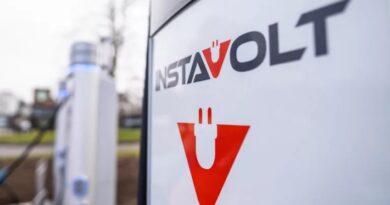One in three cars sold in 2027 could be EVs, but experts warn of challenges ahead
As many as a third (34%) of new and used cars sold in 2027 could be an EV, according to new analysis by Cox Automotive.
The automotive services provider predicts a strengthening of interest in EVs and a decline in petrol and diesel but warns the industry must overcome barriers including misinformation and the challenge of increasingly capable hybrids if it is to realise this.
It expects 34% of new registrations to be all-electric within three years, with a similar market share in the used car segment. While that is a significant change, it would still leave the new car market short of the 38% mix demanded by the current ZEV mandate.
The findings come as new SMMT data shows new EV registrations were up 58% in November, compared with the same time last year, and accounted for a quarter of all new car sales.
Cox’s insight director Philip Nothard said a ‘decisive’ shift in the new and used car markets was on the cards but ‘considerable consumer blockers’ remained.
Commenting on the latest Cox Automotive’s Insight Quarterly report, Nothard said: “By 2027, we expect to see a pivotal shift in the UK automotive landscape as the industry moves decisively away from internal combustion engines.
“With diesel and petrol vehicle shares set to decline sharply, and battery electric vehicles projected to make up over a third of new registrations, the market is clearly accelerating toward an electrified future but must be ready to help the market navigate barriers to entry.”
Dispelling myths
Among those barriers, Nothard said, was the perpetuation of scare stories and misinformation about EVs’ capabilities. He said that more work would need to be done to educate drivers about the reality of life with an EV, including around the issues of range and battery longevity.
The Cox’s report also highlighted that many drivers were also considering hybrids alongside EVs, with 39% of drivers questioned saying they would choose a hybrid for their next vehicle. Especially with news that some hybrids will be allowed to remain on sale beyond 2030, it is thought that many drivers still unsure about EVs could turn to them in the medium term, harming EV sales.
Lee Swinerd, director and head of Automotive at consultancy firm Interpath said 2025 was likely to be a bumpy road for the car industry. He noted: “The transition itself from internal combustion engines to EVs remains a key challenge. Demand from consumers for EVs has plateaued in 2024, but the manufacturers have tried to stimulate demand through customer incentives and specifically via the fleet sector in the UK.
“Overall, it feels like 2025 will be another bumpy ride for the European automotive manufacturers and their supply chains. There will be a range of pressures impacting the sector, some of which are well-known, and others are emerging as the sector responds to current issues, challenges and opportunities.”






